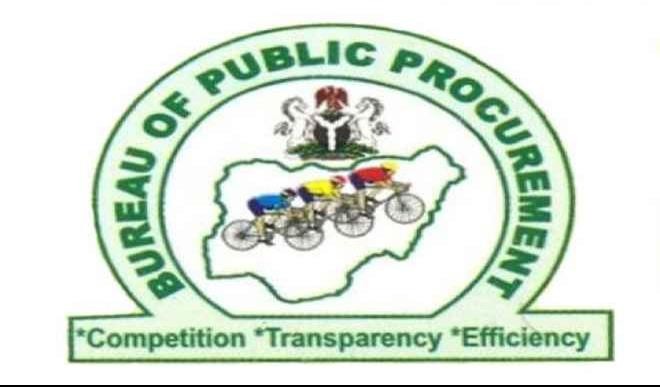As of 2020, less than five per cent of Ministries, Departments and Agencies (MDAs) in Nigeria submitted their procurement records to the Bureau of Public Procurement (BPP), the agency has revealed.
But a director at the BPP, Isaiah Yesufu, who disclosed the finding at a workshop for selected journalists in Abuja, on Tuesday, said the compliance level had increased significantly to 50 per cent one year after.
Speaking on the theme of the three-day event, ‘Reporting Corruption in Nigeria,’ Mr Yesufu said the BPP developed a portal, ‘Nigeria Open Contracting Portal’ (NOCOPO), where all information on government’s procurements are accessed by the public.
“Compliance is still relatively low but has experienced significant increase since 2020 from below 5 per cent to over 50 per cent of MDAs,” Mr Yesufu said.
He referenced Section 5 (r) of the Public Procurement Act, 2007, which empowered the BPP to establish the portal to “serve as the primary and definitive source of all information on government procurement.”
“NOCOPO is already live and is used by MDAs to prepare annual procurement plans and submit procurement records,” Mr Yesufu explained.
He, however, pointed out in his presentation titled, ‘Corruption in Public Procurement in the Civil Service: Recommendations for Improvement,’ that “there is no law compelling the MDAs to submit their procurement records.”
He enumerated irregular funding of contracts as one of teething challenges militating against efficiency in public contracting.
“Tenders are getting smarter by dropping their profit at the tender stage, but clawing back huge profits from contract variation computations due to long delays in paying contractors,” Mr Yesufu noted.
He suggested the federal government cut down on multiple project execution so as to adequately and timely fund awarded contracts.
Experts at the event were unanimous in their perspectives that bulk of the corruption in Nigeria’s public sector stems from contract procurements where prices are unduly inflated due to kickbacks.
Why journalists must embrace investigative journalism
In a presentation that held participants spellbound, on Tuesday, Idris Akinbajo, Managing Editor of Premium Times Newspaper, Africa’s foremost investigative media platform, said democracy could only thrive if journalists lived up to their responsibilities of holding government accountable.
Pointing journalists to Section 22 of Nigerian Constitution, which references “accountability media,” Mr Akinbajo explained that reporters could not afford to be only news “disseminators,” but be watchdog – interpretative, investigative, and accountability journalists.
The award-winning investigative journalist identified some troubling gaps in reporting corruption by journalists in Nigeria.
Mr Akinbajo decried the current situation where government agencies “lead the tango” in corruption reporting by issuing press releases to media houses.
“Most journalists in Nigeria only rely on press statements from spokespersons of anti-corruption agencies.
“In Nigeria’s corruption reporting, one can argue that state agents lead the tango,” Mr Akinbajo said, adding, “journalists hardly dig deep or ask critical questions” while reporting on graft.
Speaking on ‘Security and Safety for Journalists Reporting Corruption,’ Mr Akinbajo urged journalists to mitigate against threats by moving to safe locations and marking exit routes.
He highlighted “Communication (with colleagues, superiors), accuracy and networking” as some of the ways of escaping harm while reporting on corrupt practices.
Mr Akinbajo called for proper remuneration of journalists so as to be independently minded in taking up corruption reporting.
“Independence is a major challenge to doing investigative reporting in Nigeria,” he concluded.
In a similar fashion, Auwal Rafsanjani, Executive Director, Civil Society Legislative Advocacy Centre (CISLAC), said journalists had a crucial role to play in fighting endemic corruption in Nigeria.
In his closing remarks at the workshop, which was jointly organised by CISLAC and the Konrad Adenauer Stiffung (Foundation), Mr Rafsanjani, in an impassioned tone, advised journalists to deploy the knowledge they had acquired from the training to “expose corrupt practices” wherever they are found.
“It is important that journalists continue their efforts so that corrupt acts exposed,” Mr Rafsanjani, who also heads the Transparency International office in Nigeria said, wondering how the country would be without a vibrant and independent media.
Support PREMIUM TIMES’ journalism of integrity and credibility
Good journalism costs a lot of money. Yet only good journalism can ensure the possibility of a good society, an accountable democracy, and a transparent government.
For continued free access to the best investigative journalism in the country we ask you to consider making a modest support to this noble endeavour.
By contributing to PREMIUM TIMES, you are helping to sustain a journalism of relevance and ensuring it remains free and available to all.
TEXT AD: To advertise here . Call Willie +2347088095401…





